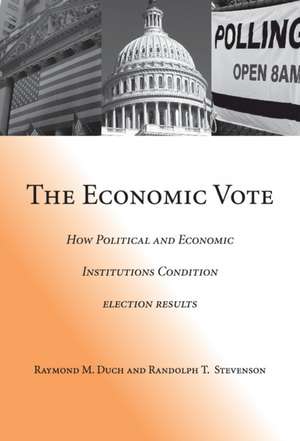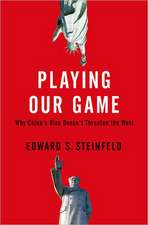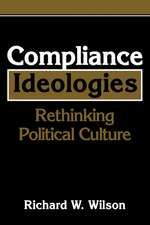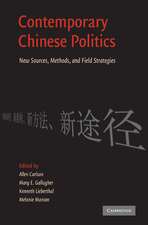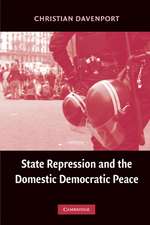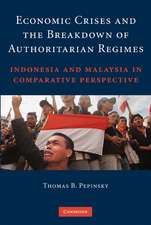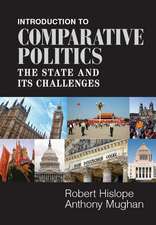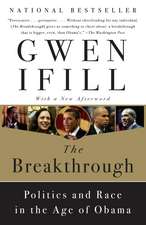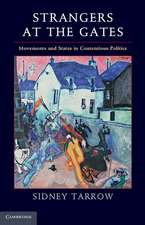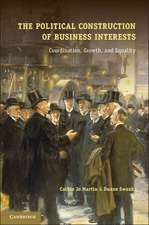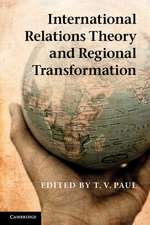The Economic Vote: How Political and Economic Institutions Condition Election Results: Political Economy of Institutions and Decisions
Autor Raymond M. Duch, Randolph T. Stevensonen Limba Engleză Hardback – 23 mar 2008
| Toate formatele și edițiile | Preț | Express |
|---|---|---|
| Paperback (1) | 274.88 lei 6-8 săpt. | |
| Cambridge University Press – 16 mar 2008 | 274.88 lei 6-8 săpt. | |
| Hardback (1) | 472.21 lei 6-8 săpt. | |
| Cambridge University Press – 23 mar 2008 | 472.21 lei 6-8 săpt. |
Din seria Political Economy of Institutions and Decisions
-
 Preț: 235.99 lei
Preț: 235.99 lei -
 Preț: 231.82 lei
Preț: 231.82 lei -
 Preț: 177.53 lei
Preț: 177.53 lei -
 Preț: 211.85 lei
Preț: 211.85 lei -
 Preț: 200.87 lei
Preț: 200.87 lei -
 Preț: 306.68 lei
Preț: 306.68 lei -
 Preț: 208.16 lei
Preț: 208.16 lei -
 Preț: 133.60 lei
Preț: 133.60 lei -
 Preț: 295.55 lei
Preț: 295.55 lei -
 Preț: 236.43 lei
Preț: 236.43 lei -
 Preț: 228.38 lei
Preț: 228.38 lei -
 Preț: 265.11 lei
Preț: 265.11 lei -
 Preț: 281.49 lei
Preț: 281.49 lei -
 Preț: 285.37 lei
Preț: 285.37 lei -
 Preț: 279.98 lei
Preț: 279.98 lei - 14%
 Preț: 773.75 lei
Preț: 773.75 lei -
 Preț: 233.38 lei
Preț: 233.38 lei -
 Preț: 247.41 lei
Preț: 247.41 lei -
 Preț: 203.12 lei
Preț: 203.12 lei -
 Preț: 230.33 lei
Preț: 230.33 lei -
 Preț: 286.69 lei
Preț: 286.69 lei - 14%
 Preț: 790.57 lei
Preț: 790.57 lei -
 Preț: 265.32 lei
Preț: 265.32 lei - 11%
 Preț: 554.15 lei
Preț: 554.15 lei -
 Preț: 287.07 lei
Preț: 287.07 lei - 11%
 Preț: 700.20 lei
Preț: 700.20 lei -
 Preț: 273.13 lei
Preț: 273.13 lei -
 Preț: 459.84 lei
Preț: 459.84 lei -
 Preț: 280.35 lei
Preț: 280.35 lei -
 Preț: 260.11 lei
Preț: 260.11 lei - 11%
 Preț: 640.30 lei
Preț: 640.30 lei -
 Preț: 286.89 lei
Preț: 286.89 lei -
 Preț: 247.80 lei
Preț: 247.80 lei - 11%
 Preț: 691.81 lei
Preț: 691.81 lei -
 Preț: 287.48 lei
Preț: 287.48 lei - 11%
 Preț: 641.80 lei
Preț: 641.80 lei - 11%
 Preț: 635.32 lei
Preț: 635.32 lei -
 Preț: 271.01 lei
Preț: 271.01 lei -
 Preț: 265.70 lei
Preț: 265.70 lei -
 Preț: 227.83 lei
Preț: 227.83 lei
Preț: 472.21 lei
Nou
Puncte Express: 708
Preț estimativ în valută:
90.36€ • 96.62$ • 75.34£
90.36€ • 96.62$ • 75.34£
Carte tipărită la comandă
Livrare economică 18 aprilie-02 mai
Preluare comenzi: 021 569.72.76
Specificații
ISBN-13: 9780521881029
ISBN-10: 0521881021
Pagini: 416
Ilustrații: 25 tables
Dimensiuni: 158 x 236 x 27 mm
Greutate: 0.66 kg
Ediția:1
Editura: Cambridge University Press
Colecția Cambridge University Press
Seria Political Economy of Institutions and Decisions
Locul publicării:New York, United States
ISBN-10: 0521881021
Pagini: 416
Ilustrații: 25 tables
Dimensiuni: 158 x 236 x 27 mm
Greutate: 0.66 kg
Ediția:1
Editura: Cambridge University Press
Colecția Cambridge University Press
Seria Political Economy of Institutions and Decisions
Locul publicării:New York, United States
Cuprins
1. Introduction; Part I. Describing the Economic Vote in Western Democracies: 2. Defining and measuring the economic vote; 3. Patterns of retrospective economic voting in western democracies; 4. Estimation, measurement, and specification; Part II. A Contextual Theory of Rational Retrospective Economic Voting: Competency Signals: 5. Competency signals and rational retrospective economic voting; 6. What do voters know about economic variation and its sources?; 7. Political control of the economy; Part III. A Contextual Theory of Rational Retrospective Economic Voting: Strategic Voting: 8. Responsibility, contention, and the economic vote; 9. The distribution of responsibility and economic voting; 10. The pattern of contention and the economic vote; Part IV. Conclusion and Summary: 11. Conclusion.
Recenzii
'Do elections offer voters the opportunity to select candidates of higher expected ability? Can voters evaluate the performance of the economy in order to do this? This bold book examines a quarter-century's data in eighteen countries to offer affirmative answers to these theoretical and empirical questions. It offers new and fundamentally important insights into relationship between economic management and candidate choice.' James E. Alt, Harvard University
'Duch and Stevenson have produced a formidable scholarly accomplishment in this book. They have synthesized and extended more than a quarter century of work on how the economy affects voter behavior in advanced industrialized nations. They have done so by carefully developing a unified theoretical model that gives conditions under voters do and do not exercise the economic vote and, more importantly, testing the predictions of this model on a new cross-national data-set using cutting edge methodology. It will surely influence the next generation of works.' Jonathan Katz, California Institute of Technology
'The Economic Vote is the definitive study of comparative economic voting in advanced Western democracies, as revealed by analysis of election surveys. Nothing close to it now exists in the literature.' Michael Lewis-Beck, University of Iowa
'The Economic Vote - a tour de force about economic voting, voters' perceptions of the economy and how they are formed and the important role that institutions and competition play in determining all of these things. … persuasively makes the case that context matters. … The Economic Vote sets the bar high on multiple dimensions.' Journal of Politics
'Duch and Stevenson have produced a formidable scholarly accomplishment in this book. They have synthesized and extended more than a quarter century of work on how the economy affects voter behavior in advanced industrialized nations. They have done so by carefully developing a unified theoretical model that gives conditions under voters do and do not exercise the economic vote and, more importantly, testing the predictions of this model on a new cross-national data-set using cutting edge methodology. It will surely influence the next generation of works.' Jonathan Katz, California Institute of Technology
'The Economic Vote is the definitive study of comparative economic voting in advanced Western democracies, as revealed by analysis of election surveys. Nothing close to it now exists in the literature.' Michael Lewis-Beck, University of Iowa
'The Economic Vote - a tour de force about economic voting, voters' perceptions of the economy and how they are formed and the important role that institutions and competition play in determining all of these things. … persuasively makes the case that context matters. … The Economic Vote sets the bar high on multiple dimensions.' Journal of Politics
Descriere
The book explains how different political and economic circumstances account for the variation in the economic vote.
